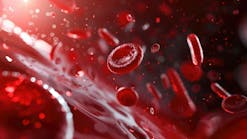A new study found that school-aged children who consumed more isoflavones from soy foods exhibited better thinking abilities and attention.
To examine the potential benefits of soy isoflavones, the researchers examined previously available data from a cross-sectional study that included 128 children ages 7 to 13. They used information from 7-day diet records to calculate each child’s average dietary intake, including the amounts of macronutrients, micronutrients, vitamins and isoflavones consumed. To assess the children’s general intellectual ability, the researchers used a set of pencil and paper tests adjusted for grade level. They also measured attentional abilities using a computerized task known as the flanker task while electroencephalographic (EEG) activity was recorded and used to measure information processing speed and attention.
Overall, the analysis revealed that the children in the study tended to consume low amounts of isoflavone-containing soy foods. However, those who did consume more soy foods showed faster responses during the attentional tasks and exhibited faster processing speed. No association was observed between soy isoflavone intake and general intellectual ability.
“The children in our study consumed an average of 1.33 mg of isoflavones per day, which while relatively low, aligns with previously reported values for the United States,” said Ajla Bristina. “Soy consumption for individual participants ranged from 0 to 35 mg/day. To put this into perspective, an 8 fl. oz serving of soy milk provides about 28 mg of isoflavones, a serving of tofu provides about 35 mg and half a cup of steamed edamame provides about 18 mg of isoflavones.”




